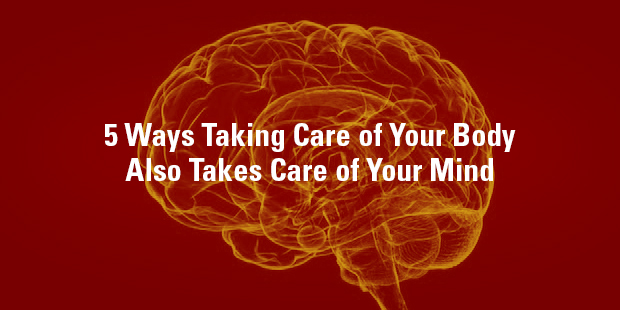
5 Ways Taking Care of Your Body Also Takes Care of Your Mind
I recently read Spark: The Revolutionary New Science of Exercise and the Brain and walked away from the read more convinced in the importance of exercise. While we often think of exercise as critical to a healthy body, it is also essential for a strong mind. In his book, Dr. John Ratey offers a compelling case for exercise significantly and positively impacting our mental health, growth, and capacity. While he does not discount exercise for the sake of caring for your body, he argues, “Exercise is the single most powerful tool to optimize your brain function.”
The case study that nudged Ratey to write the book comes from Naperville, Illinois. Naperville District 203 is known as the fittest school district in the nation, and one of the smartest. Years ago, as maverick physical education teachers piloted scheduled running and exercise sessions before school started, the students in those sessions saw their grades dramatically improve. As the strategy spread, “guidance counselors began suggesting that students schedule their hardest subjects immediately after gym to capitalize on the beneficial effects of exercise.” Exercise, according to Ratey, directly lifted the student’s test scores and academic performance.
When it comes to stewarding our minds well, here are five ways exercise helps (all taken from Ratey’s research and book):
- Exercise increases learning ability: As we exercise, our minds are put in a better position to receive and apply new information.
- Exercise lowers the impact of stress: Exercise puts stress on your mind and body and trains your mind to handle stress better by teaching you that you can manage and master it.
- Exercise lowers sensitivity to anxiety: Anxiety is going to bombard leaders, but exercise builds a resistance to it. Ratey writes, “When we increase our heart rate and breathing in the context of exercise, we learn that these physical signs don’t necessarily lead to an anxiety attack. We become more comfortable with the feeling.”
- Exercise helps fight depression: While I am not naively suggesting merely to “read your Bible and run a mile and you will be fine,” exercise can help fight depression. According to Ratey, “Exercise influences the same chemicals that antidepressants do.” In other words, exercise is a form of medicine.
- Exercise increases memory capacity: A fascinating study, highlighted in Spark, was conducted by neurologist Scott Small, who put volunteers on a three-month exercise regimen and then took pictures of their brains. He discovered that the capillary volume in the memory area of the brain increased by 30 percent!
Leaders sometimes think of exercise as a tool to help them steward their bodies, but the reality is that exercise is also a tool to steward our minds better. We are integrated people, and taking care of our bodies cannot be separated from taking care of our minds. Plato said it this way:
In order for man to succeed in life, God provided him with two means, education and physical activities. Not separately, one for the soul and the other for the body, but for the two together.

Tags: Eric Geiger, Exercise, Mind












